Linode Kubernetes Engine is our managed Kubernetes product that makes creating and maintaining K8s clusters more efficient and accessible, both in terms of user experience and pricing. To further this mission, we’re now giving more control to our users and we’re excited to announce a new feature: self-service Kubernetes version upgrades.
With a couple of clicks in Cloud Manager, your cluster’s node pools will be recycled and updated to the newest version. This ensures that your clusters are always supported by LKE and you have the latest Kubernetes security patches and features.
Kubernetes is a versatile containerization tool that’s rapidly growing in both popularity and range of applications, and releases happen frequently. Adding notifications in Cloud Manager to inform our Kubernetes users when upgrades are available simplifies the process of staying on the latest version as soon as it becomes available. This makes it much easier to keep clusters up to date and secure, and gives you more freedom to upgrade when it works best for you.
How to Upgrade Kubernetes Versions in Cloud Manager
Select Kubernetes in the main navigation.
Select one of your clusters to go to the cluster detail page. You’ll see the cluster name and version. A banner will appear at the top of your screen saying that a version upgrade is available. Select “Version Upgrade”.
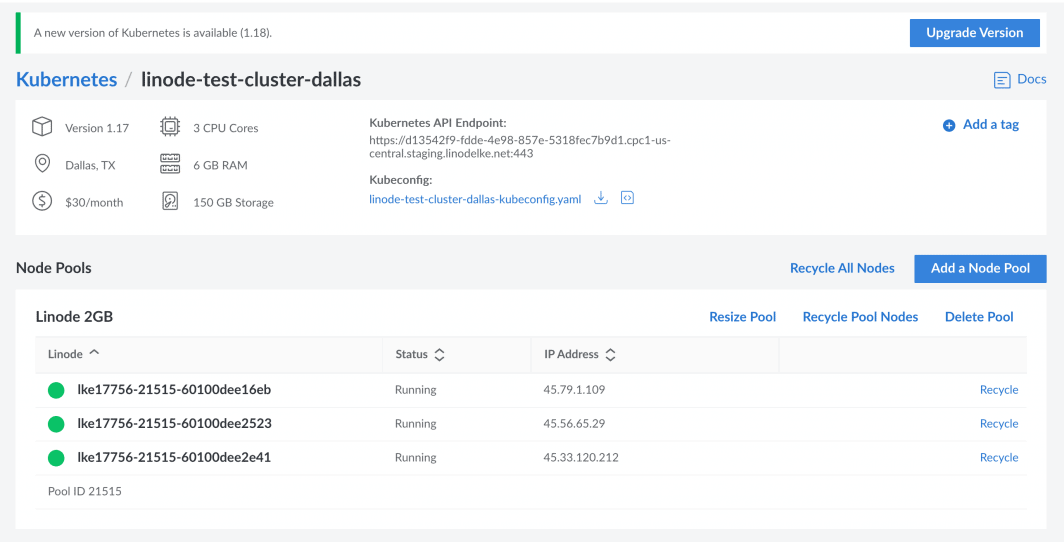
You can also start the upgrade process directly from the main Kubernetes page by selecting Upgrade next to the version number in the Version column.

You will see a modal pop up prompting you to recycle all nodes in the cluster for the changes to take full effect. If you would like to continue the upgrade, select “Recycle All Nodes”.
Note: Recycling your node pool involves deleting each of the Linodes in the node pool and replacing them with new Linodes. Any local storage on deleted Linodes (such as “hostPath” and “emptyDir” volumes, or “local” PersistentVolumes) will be erased.
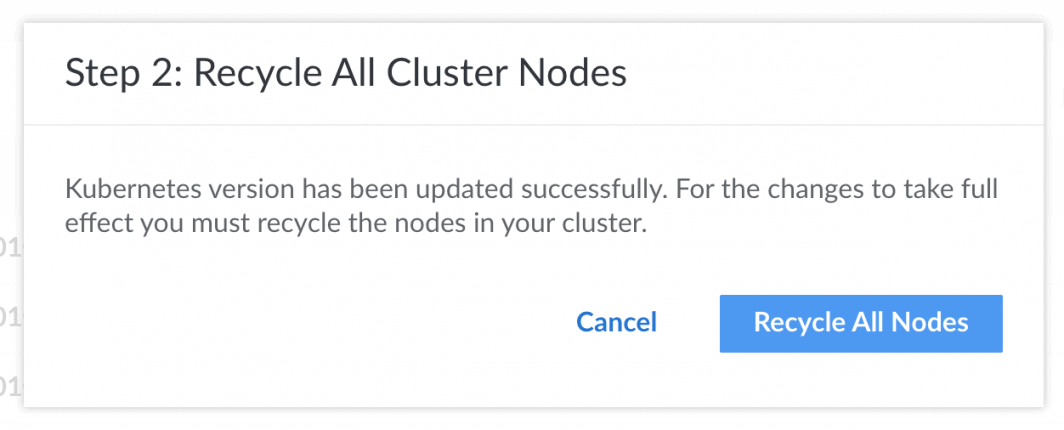
Learn More About Recycling Node Pools and Upgrading Kubernetes Versions
Check out our guide on Deploying and Managing a Cluster with Linode Kubernetes Engine. Node pool upgrades and recycling are also available via the Linode API.
Keep up with other updates and releases with the LKE Changelog.
Linode Kubernetes Engine runs Certified Kubernetes to ensure that clusters are portable and support the required APIs.
Get Started with Linode Kubernetes Engine
New to Kubernetes, or want to see how LKE compares to other managed K8s services? Check out our range of webinars and other resources on Kubernetes, or explore all Linode Kubernetes Engine docs.


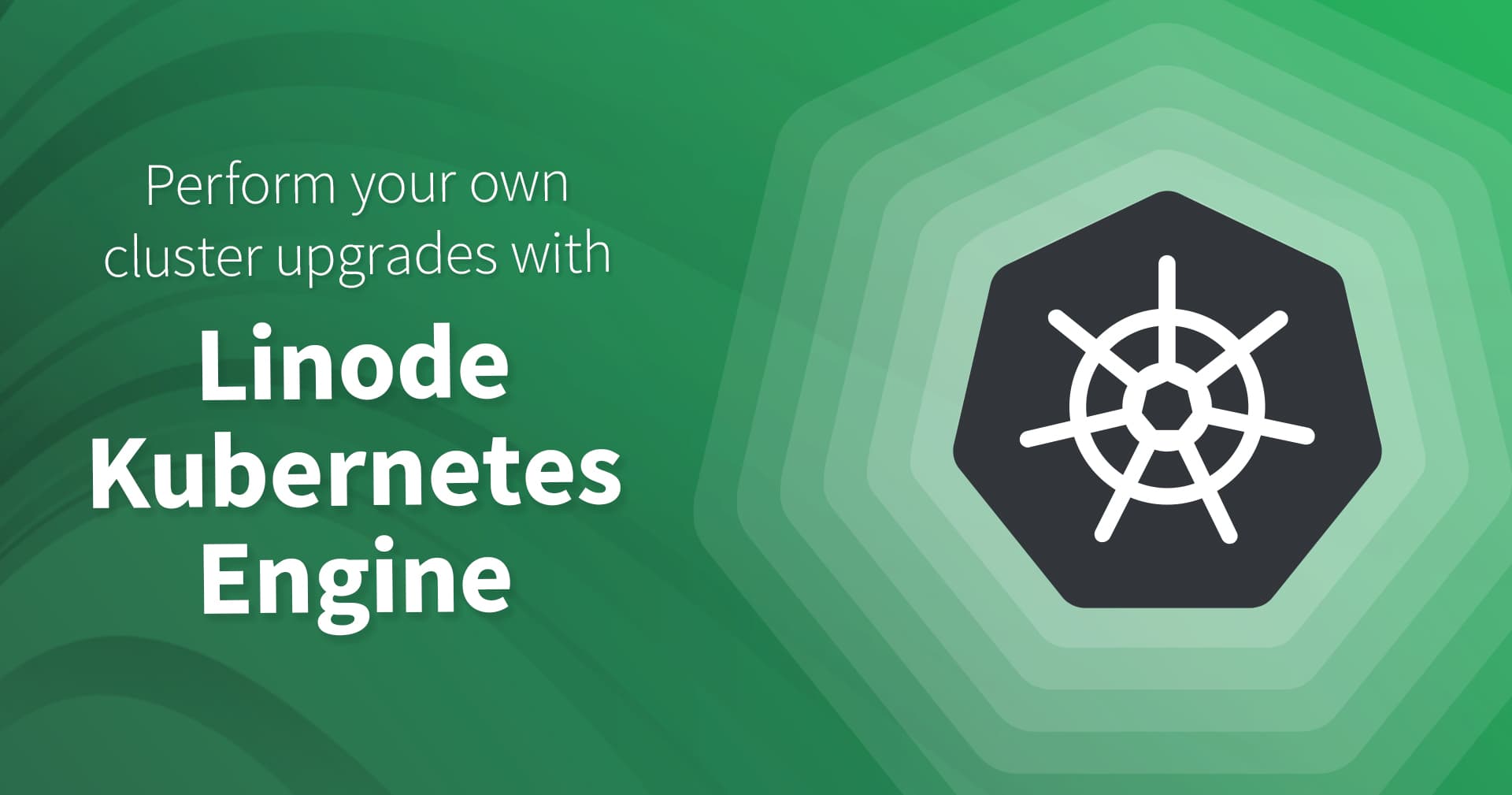

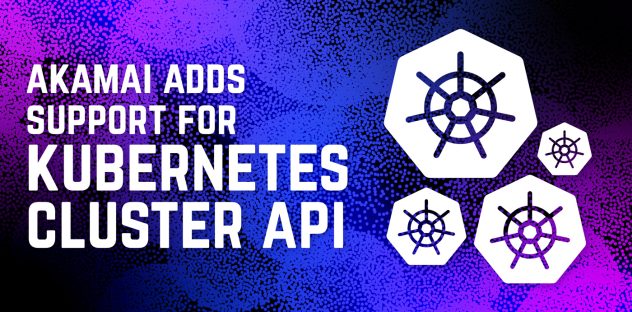
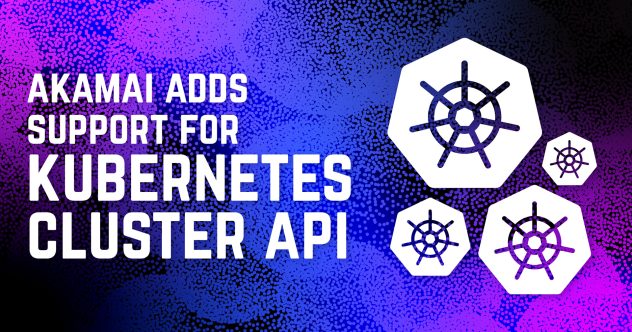

Comments